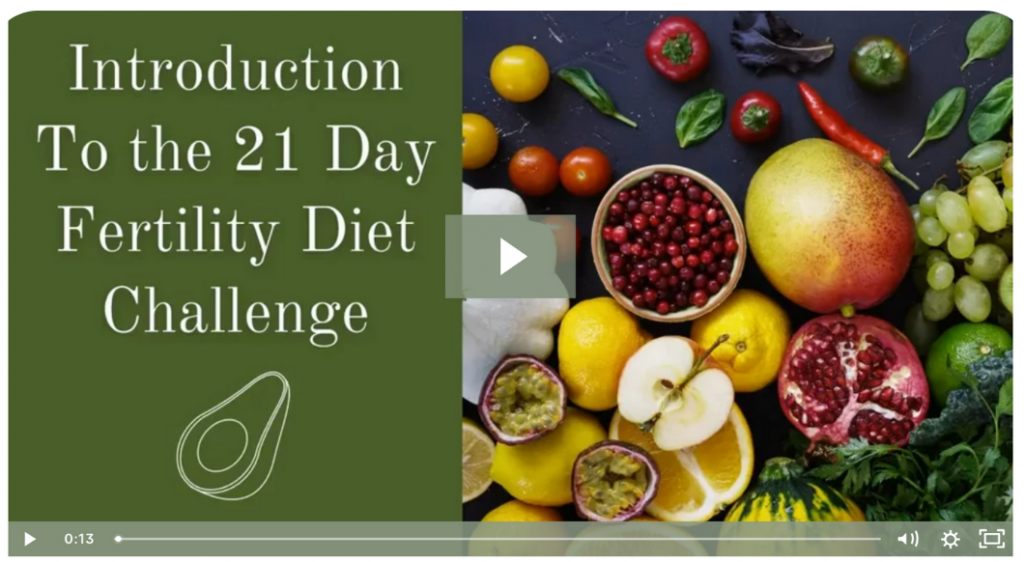Fertility Foods: Foods which are nutrient dense in specific vitamins and minerals that are necessary for a healthy reproductive system and hormonal balance.
There are many foods that are rich in nutrients and are extremely beneficial for healthy fertility. Below is a list of foods that are packed with nutrients that are necessary for healthy fertility, and can be found in almost any grocery store. Studies have shown that deficiencies in some of the nutrients found in these foods (zinc, iron, omega 3) can actually be the cause of infertility in some cases; once the deficiency is reversed, fertility is restored.
Broccoli (hormone cleanser)
Broccoli is a member of the cruciferous family of vegetables. This wonderful vegetable has compounds that help the body to get rid of excess estrogen. Other foods that you can use for the same purpose are brussels sprouts, cabbage and kale. Broccoli can be eaten raw or steamed. I love it lightly steamed; simply steam with some olive oil, salt and pepper.
Berries (antioxidants)
Berries are an important part of the fertility diet because they provide high amounts of antioxidants. Antioxidants are used in the body to protect cells from free-radical damage. Antioxidants help to protect fertility by defending the eggs and sperm from DNA damage and helping to keep tissues of the reproductive system healthy. Berries are great in smoothies, by themselves, with yogurt, on cereal, on top of salads, and as a quick snack. It is important to buy berries organic as they are heavily sprayed with pesticides when grown conventionally.
Pumpkin Seeds (zinc, iron, omega 3)
Zinc, an important mineral for fertility, and is actually one of the nutrients most Americans are deficient in. Zinc is used in many processes of the body, specifically for fertility; zinc is used to create genetic material. So, it is important for sperm health, testosterone levels, the immune system, and healthy DNA. It also helps to protect sperm from chromosomal damage. The richest source of zinc is oysters, but some easy to find-and-eat sources are raw pumpkin seeds and sesame seeds (look for tahini – sesame seed butter, as well).
Walnuts (omega 3)
Omega 3 essential fatty acids are needed for healthy hormone production as well as healthy brain development for your growing baby. Fish is a great source, as are chia seeds, but an easy to find source of omega 3 is raw walnuts. Did you know that 1/4 cup of raw walnuts contains about 2,270 mg of Omega 3 fatty acids! Walnuts can easily be consumed as freshly made walnut milk, on top of fruit or as a snack. Make sure to purchase raw walnuts, as heat damages the essential fatty acids.
Watch The Introduction to the 21 Day Fertility Diet Challenge
- Learn how to transition to a natural fertility diet by focusing on the important 5
- Get all the details on how to use nutrition as a tool for hormonal health, cell protection and fertility wellness
- An effective tool to help your tastebuds transition towards healthier foods
- Learn which foods are most important for fertility and how to regularly eat them

Chard (iron)
One cup of steamed chard contains 4gm of iron and vital vitamin C to help your body absorb and utilize iron, as well as protein. Iron is important for fertility as deficiencies in iron have been shown to cause ovulation to stop. Chard can be eaten raw or steamed. I like to juice chard as well.
Lentils (folate)
Lentils are rich in folate (folic acid). They are inexpensive, easy to find, and quick to cook. Folic acid is an important nutrient to have in your daily diet before you become pregnant and through pregnancy. I like to use lentils in ‘What’s in the Fridge Soup’, curried lentils, and sprout them for salads. Lentils are also rich in iron, fiber, and protein. One cup of cooked lentils provides 90% of your daily folate needs.
Spinach (iron, folate, zinc, antioxidants)
Spinach is one of the most nutritious foods on the planet. Packed with folic acid, iron, zinc, and antioxidants, spinach is a must in every fertility diet. Steamed or raw spinach can be used in so many ways. You can eat it as a steamed side vegetable, add it to soups, add raw spinach to smoothies (you can’t even taste it) or make it the base of your salads. A day does not go by that I do not eat spinach when it is in season.
These are not the only super-nutritious-fertility-supporting foods available, but I wanted to highlight some of the best ones so you have some new ideas when you go grocery shopping.
Another thing to remember about whole foods is that, in addition to the nutrients I highlighted above, these foods are packed with many other nutrients and their co-factors, which are necessary for assimilation in the body. That is why eating a whole food fertility diet is so very important and is the first step to healthy fertility.
If you would like to learn how to incorporate these types of foods into your diet, make sure to join the 21 Day Fertility Diet Challenge where you can get recipes, ideas and support in switching to a healthy, whole food fertility diet.
Have you been eating these 7 foods often? Share your thoughts below…





